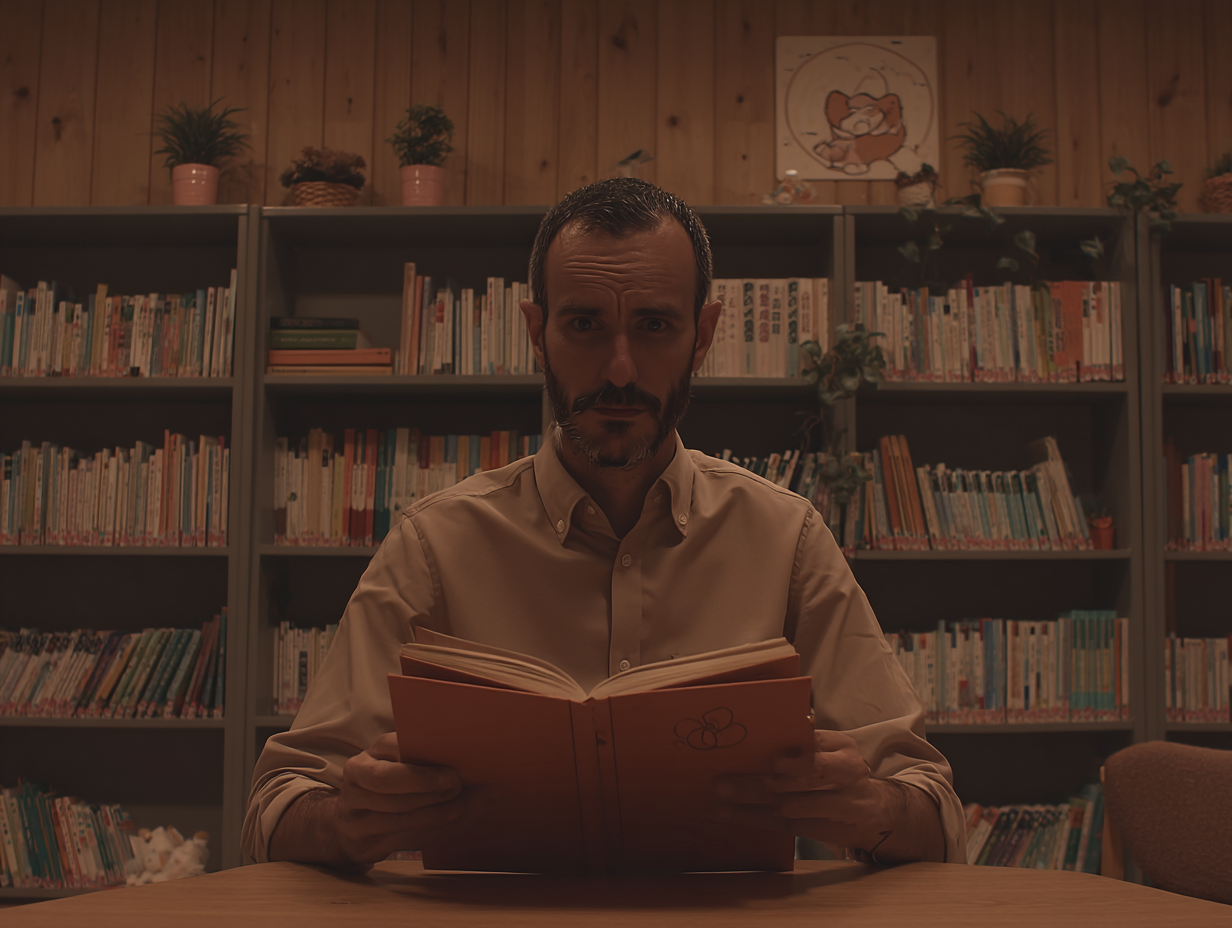The Cowardice of the Copied Thought

I couldn't help but nod along as I was reading David Brooks’ recent piece about the decline of the novel. I'm from a generation that still remembers when new books by Philip Roth or Toni Morrison were cultural tremors, sending shockwaves of reviews and arguments through the landscape. Brooks is right to mourn that loss. He points to a crisis of conformity and a failure of nerve as the culprits. But I think the problem runs deeper than the spines on our bookshelves. The issue isn't just that we've stopped reading audacious novels. It's that we've stopped thinking audacious thoughts.
We've traded the sweat of genuine philosophical inquiry for the comfort of pre-packaged opinions. We scroll through our feeds and absorb worldviews in the form of infographics and viral video clips. It’s the intellectual equivalent of a diet consisting entirely of nutritional paste. You get the calories, I suppose, but you miss the entire experience and texture of the meal. The problem isn’t a lack of information. It’s a glut of it, delivered in formats that discourage the very struggle that creates real understanding.
The person who gave us the language for this phenomenon wasn't a media theorist, but a psychologist I've long admired, a man who spent his life thinking about thinking. Daniel Kahneman, an Israeli-American psychologist who spent his early years in Paris hiding from the Nazis, fundamentally changed how we understand human judgment. His father was even spared from a roundup of French Jews because his employer intervened. After moving to Palestine just before Israeli independence, Kahneman eventually landed in the psychology branch of the Israel Defense Forces, where he developed interview systems for recruits.
With his collaborator Amos Tversky, Kahneman showed that humans are not the rational actors economists once believed us to be. His masterwork, Thinking, Fast and Slow, posits that we operate with two systems. System 1 is fast, intuitive, and emotional. It’s the part of your brain that gets a feeling about a person or reacts to a headline. System 2 is the slow, deliberate, and logical part. It’s the part you have to consciously engage to solve a complex problem, check the facts, or question your own assumptions. Our culture has become a giant engine for keeping us perpetually in System 1. Everything is designed for the quick take, the immediate reaction, the effortless digestion. Real thinking, the kind that changes your mind or builds a genuine conviction, lives exclusively in System 2. And System 2 is hard work.
So we outsource it. We find an influencer, a columnist, or a political tribe that seems to align with our gut feelings, our System 1, and we effectively copy and paste their conclusions as our own. We absorb a caricature of a philosophical position. We might see an Instagram post that reduces Stoicism to "just don't worry about things," or a TikTok that explains existentialism in fifteen seconds with a moody soundtrack. It’s a phantom limb of an idea; it feels like it’s there, but it has no substance.
This is a failure of audacity that’s more profound than the one Brooks identifies in writers. It is a personal failure of courage. The most rebellious act in the current moment might not be writing a sprawling, society-defining novel. It might be to simply turn everything off and read one difficult book. I’m not talking about a bestseller, but something dense and knotty. Read René Descartes.
And I mean really read him. Don't just learn "I think, therefore I am." Understand that this was the end-point of a terrifying process of radical doubt, where a man tried to strip away every single belief that could possibly be false to find one unshakable truth. This was a man who, much to my own delight, did his best thinking in bed, often staying there until noon. He saw sleep as nourishment for the brain. His life’s habit was leisure and deep contemplation. Yet his revolutionary ideas were so feared that the Pope eventually placed his works on the Index of Prohibited Books.
His ultimate demise was a tragic irony. Queen Christina of Sweden, a notorious early riser, summoned him to her court to be her tutor, demanding he meet her for lessons at 5 AM. The brutal Swedish winter and the shock to his system of a lifetime of late rising led to the pneumonia that killed him. The man who championed the power of the solitary, deliberating mind died because his schedule was disrupted.
To sit with Descartes' Meditations is to engage in an act of intellectual bravery. To wrestle with his arguments is to build the mental muscle of System 2. It’s an exercise in confronting the void, not just repeating a slogan born from it.
As someone who builds AI tools, I live with this paradox every day. I create systems that can simplify, summarize, and streamline. These are powerful aids, but they are dangerous masters. They can give you the gist of Kahneman or the conclusion of Descartes in a flash. What they cannot give you is the internal transformation that comes from the struggle. That is a uniquely human process. It is messy, slow, and often frustrating. But it's the only way to build a thought that is truly your own. The alternative is to become an echo, mouthing words that we never earned the right to speak. And that is a far greater dehumanization than the loss of any novel.